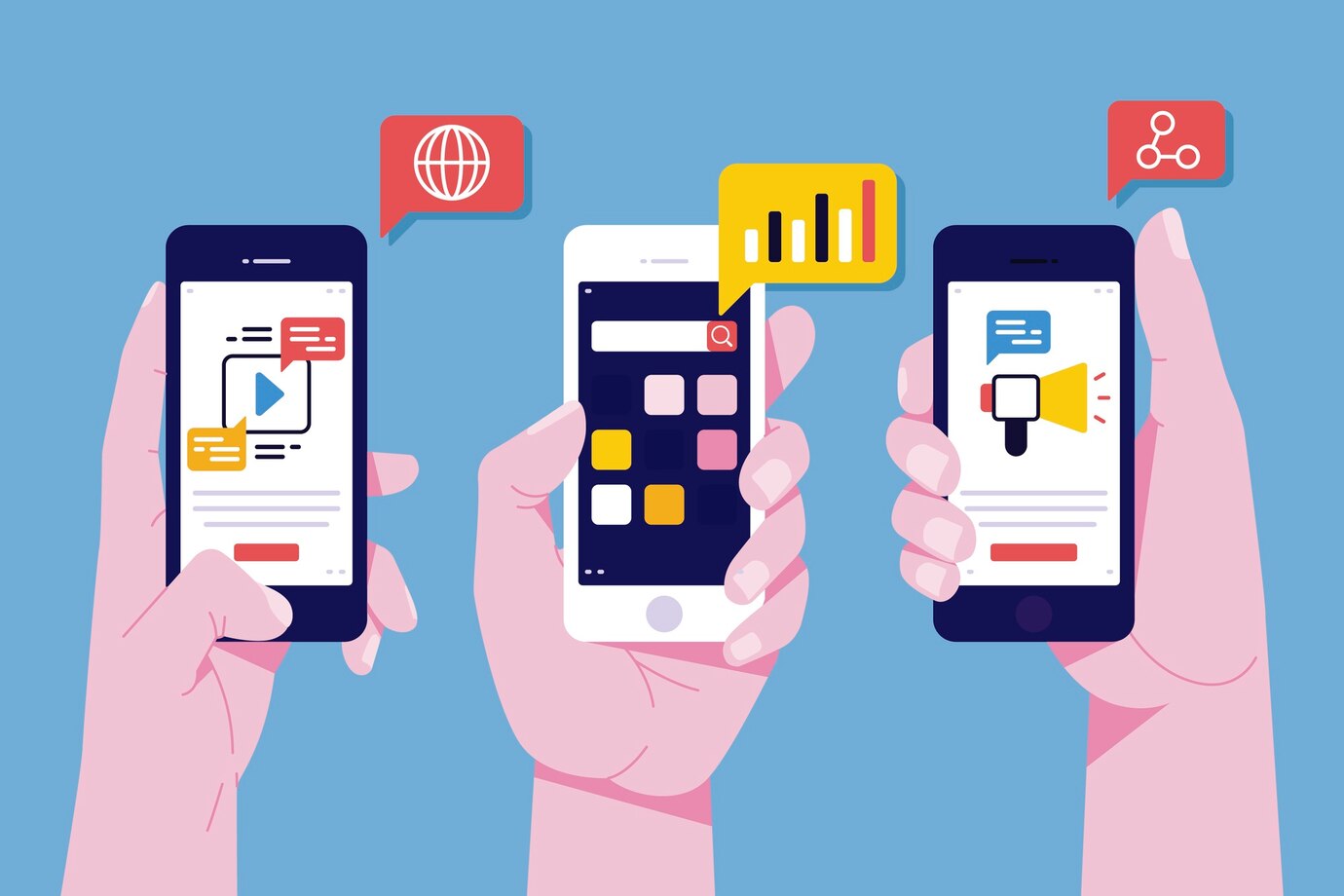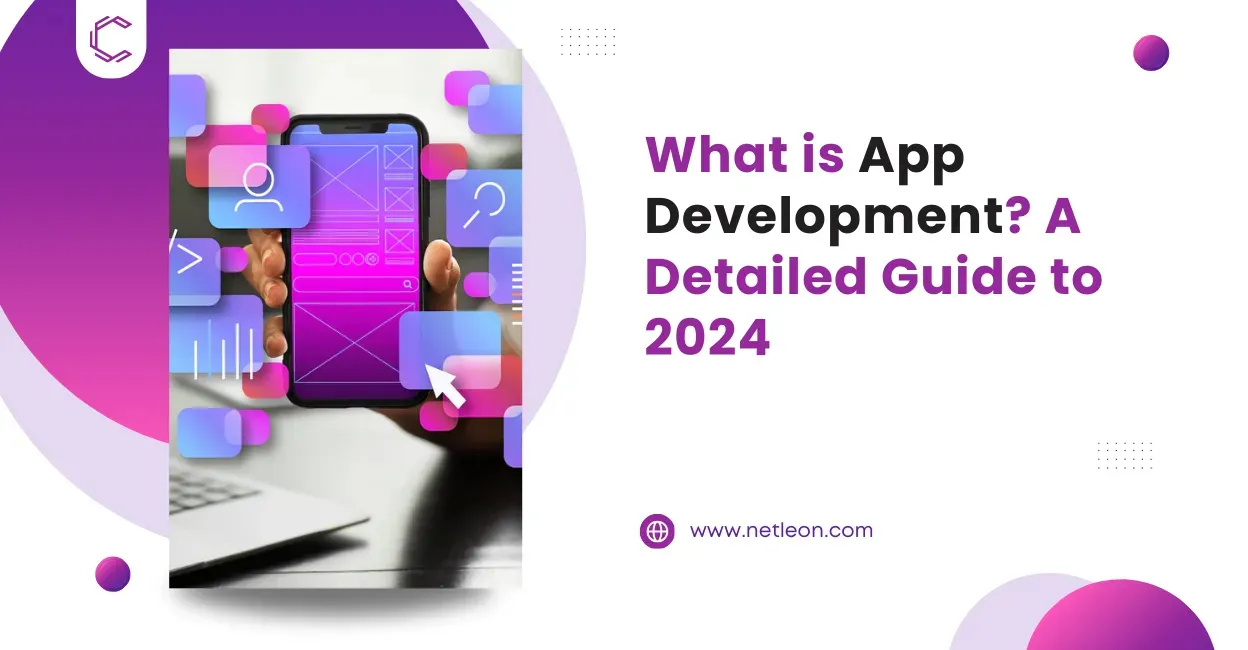Introduction
With the advent of technology, the world has surpassed the barriers to communication. Countries are progressing in research and development of various kinds of technologies with the internet, mobile, social media, and computers, to name a few. Given the old days when delivering a message used to take many days, wireless communication now dominates the market share. It just takes a fraction of a second to deliver the message over a hardware device. People have understood the new technology and are adapting to it.
At this time, businesses are even more profound in their work as they get themselves at the helm of new technology. Overall, the method of communication has developed in its true sincerity, with the capacity to help everyone in their work.
What is application development?
In the age of digitization, hardware technology has evolved, and through it, software technology is continuously growing. These two technologies are making it possible for people to communicate. For instance, the use of mobile devices for communication is the new norm. Mobile-based applications, known as apps, result from the use of technology. Applications, in their true sense, are software that provides some kind of function to its user.
Various companies develop mobile devices, with Apple. Inc. and Google. Inc. as the major ones. Both of them have developed operating system that work on selected devices. Apple’s operating system works only on Apple’s devices, and Google’s Android operating system works on Google’s devices and a few other brands. This operating system provides for the user interface through which the user can interact with the device, which in turn interacts with the user interface of the mobile device of the other user. They provide app development services in USA.
Also Read: Flutter App Development Guide 2024 (Cost, Features, and Essential Steps)
App development is the process of planning, designing, creating, testing, and deploying an application to perform various business operations, which supports communication. Large teams working together on a project or freelance developers can develop apps.
What are mobile applications?
Firstly, introduced in the 1980s, the early mobile app development services were very basic, like off-clocks and calculators. Nowadays, it has led to the development of applications for a large number of business operations and offers multiple functionalities. Mobile app development services take a standard methodology.
Benefits of application development
An app can help the business grow its name. There are some benefits of the app: –
- Reaching multiple customers: An app allows us to engage with many customers quickly. It can inform the customer about the product or service that the company is offering. This can also update the customers about any information in the company and can generate feedback for the customers.
- Branding: Positioning the product and generating sales can help brand the company. A large base of customers knows that apps can benefit digital marketing services greatly.
- Savings: An app can save money for the business, as it can streamline the process and improve efficiency.
- Data collection: An app collects lots of data for the business about customer behaviour and preferences. Businesses can analyze this data and use it to develop marketing strategies and provide better customer experiences. For instance, 3D game development apps can tell what the youngsters are willing to play.
- Easy access: With the help of apps, customers can access company information easily, which can help them generate loyalty and trust.
What are the steps in app development?
The app development is a multi-stage process that requires planning, designing, building, testing, and launching. It can be made either by an entire team working on a project or by an individual. Application development is related to the software development life cycle (SDLC).
There are various steps in app development:
- Planning and research: The objectives of designing the app must be stated. Developers work on hardware and software requirements, marketers study the demand in the market, and business teams analyze competition and opportunities for growth.
- Design and prototype: Developers design on the page the draft outlines of the app to satisfy their requirements. This helps them to visualize the app in a better way.
- Code development: Developers now write the code for providing functionality to the app. This stage has two aspects: end development, which has the user interface, and back-end development, which has the server end.
- Testing: Now the app goes through a testing process where the developers do formal testing of how the app is functioning and debug the problems, if any.
- Release and after-services: Provided that, after testing, the app can be finally released. After release, the team needs to look for possible bugs and respond to them.

What are the types of mobile app developments?
There are Four types of mobile app development:
- Native apps
- cross-platform apps
- Web apps
- Hybrid apps
1. Native apps
This kind of app is designed for specific operating systems, such as iOS and Android. Users can download them from app stores like the Apple Store and Google Play.
2. Cross-platform app
This multiplatform mobile app supports several operating systems, and developers can use different frameworks or technologies, such as React Native, Xamarin, Flutter, and others. These options offer multiple benefits, including agile technology, cost-effectiveness, and cross-platform compatibility.
3. Web apps
These are the apps that run on a browser but behave like native apps. They are delivered on the world wide web using internet services. They can be used from various web browsers. Their development process is simple and low-cost. There is no need to download them. This saves the hard drive capacity and a good user experience. Also, they are scalable as they are stored on the cloud and no extra capacity is required.
4. Hybrid apps
These apps combine the features of both native apps and web apps. They require download on mobile hardware but are built using HTML, CSS, and JavaScript. They can run both online and offline. Examples are Uber, Ola, and Twitter.
FAQs
1. What is mobile app development?
Mobile app development is the process of creating software applications that run on mobile devices such as smartphones and tablets. It involves designing, coding, testing, and deploying apps on platforms like iOS and Android.
2. What are in-app purchases?
In-app purchases are additional content or features that can be bought within a mobile app.
3. What are the programming languages used in app development?
Common languages include Java (Android), Swift (iOS), Kotlin (Android), JavaScript (web and cross-platform), Dart (Flutter), C# (Xamarin), Python, C++, and Rust.
More Blogs You May Like
- Digital Marketing Trends and Importance of User
- How to Build a website like iStock Photo or Shutterstock?
- 5 Tips to Improve Your Investor Relations Website
- Flutter vs. React Native in 2023: Which is Better?
- App Like IKEA, Do you know the Cost?
- Why Your Business Needs a Custom CRM or ERP System
- Natural Language Processing (NLP) Applications In Business
- The Future of iOS Dev and iOS App Development: 2024 Insights
- Top 10 Best Cross-Platform App Development Frameworks in 2025
- How To Integrate Third-Party Services Into Your WordPress Website?


